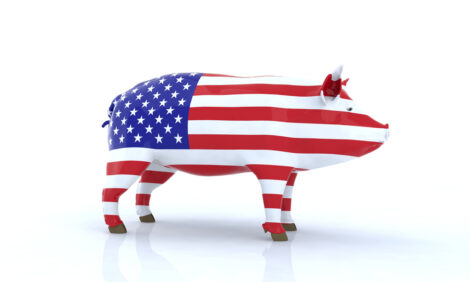



China encouraged to accept international residue levels
CANADA - The Canadian Pork Council is hoping China can be convinced to approve internationally acceptable maximum residue limits for Ractopamine in pork, writes Bruce Cochrane.Last month China rejected several shipments of Canadian and US pork and de-listed several processing plants, including one in Canada, as approved exporters of pork to China after finding traces of Ractopamine in tested samples.
While Ractopamine is approved for use in Canada and the US it is not in China.
Canadian Pork Council Executive Director Martin Rice notes, while several studies have demonstrated the safety of Ractopamine, products in the same class have been shown to pose a risk to human health and China has banned the entire class.
Martin Rice-Canadian Pork Council
Clenbuterol is one of those products.
Clenbuterol has been found to be used illegally in China as well as in Europe and elsewhere as a growth promotant in veal production for example.
So the Chinese, like the E.U., the European Union, took an approach of banning that whole class of products instead of looking at them individually.
It would be sort of like banning all antibiotics where some may not be good for human health and others are fine.
They, I think, have to be convinced that residues of Ractopamine can not be confused with residues of those more dangerous drugs, that if Ractopamine is allowed for use in China, that it won't lead to those dangerous products being used.
In the meantime we're hoping that China will, as Japan did, look at the tolerance that the international body called Codex is arriving at even though it has not yet made the product available for its own producers.
If China could go that route that would certainly be the most beneficial outcome for everyone.
Rice notes more than 20 countries have approved the use of Ractopamine in hogs and he expects other countries to approve the product over the next couple of years.








